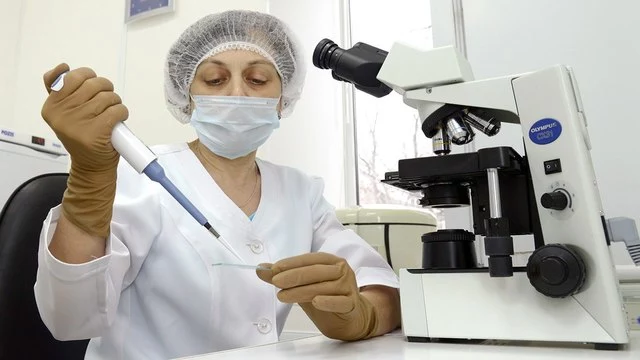In vitro fertilization is a necessary measure for women who cannot become pregnant naturally. The likelihood of successful fertilization and pregnancy largely depends on age and health, but if you want to increase your chances of becoming a mother, you will have to adjust your lifestyle and give up some habits.
 41.5%, under 35 years old
41.5%, under 35 years old
32% at 35-37 years old
22% in 38-40 years old
12% in 41-42 years old – 12%,
5% in 43- 44 years old – 5%
1% over the age of 44
When it comes about assisted reproductive technologies, much depends on the level of qualifications and experience of the doctor and the capabilities of the embryological laboratory. But a lot also depends on the woman.
Here is what you can and should do in preparation for IVF:
Normalize your weight
It's not easy, but unfortunately, it's necessary. A meta-analysis of 49 major studies found that women with a high body mass index (27 or higher) are more likely to have ovarian dysfunction compared with women of normal weight. In addition, overweight and obesity increase the risk of cycle cancellation. Severe thinness also does little to promote successful fertilization through IVF—patients with a BMI below normal had lower live birth rates than women with normal weight. Don't forget that excess weight can complicate your health during pregnancy.
Avoid alcohol
It is known that women's consumption of alcohol at the beginning of an IVF cycle can negatively affect the result. Drinking strong drinks reduces the chances of successful fertilization, even if you drank alcohol a month before the procedure. The study found that women who drank one alcoholic drink a day had fewer eggs retrieved than abstainers, and four drinks a week could significantly reduce live birth rates.
Note that the tradition of skipping is temporarily abandoned. Not only expectant mothers, but also fathers will have to drink a glass in preparation for IVF – even a moderate amount of alcohol consumed by both parents can reduce the chances of successful fertilization.
Quit smoking
Again, both partners will have to give up the bad habit. A study conducted in Dutch IVF clinics among more than 8.4 thousand women found that smoking reduces the live birth rate by 7.3%. Moreover, the rate of spontaneous abortion in smokers was 21.4% compared to 16.4% in non-smokers. At the same time, “smoking experience” has nothing to do with an unsuccessful pregnancy as a result of IVF.
Reduce the consumption of caffeinated drinks
It is not at all necessary to give up your favorite coffee in the morning, but during preparation For IVF and pregnancy, it is better to limit yourself to one cup a day. Just 300 mg of caffeine per day (3-4 cups) significantly increases the risk of spontaneous abortion. However, no connection has yet been identified between caffeine consumption and natural fertility, which means you just need to reduce your daily intake to increase your chances of a successful pregnancy and childbirth.
If you are a coffee drinker who needs to drink a few cups per day, try temporarily switching to decaf – coffee with minimal caffeine content.
